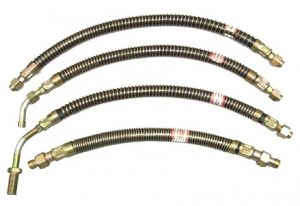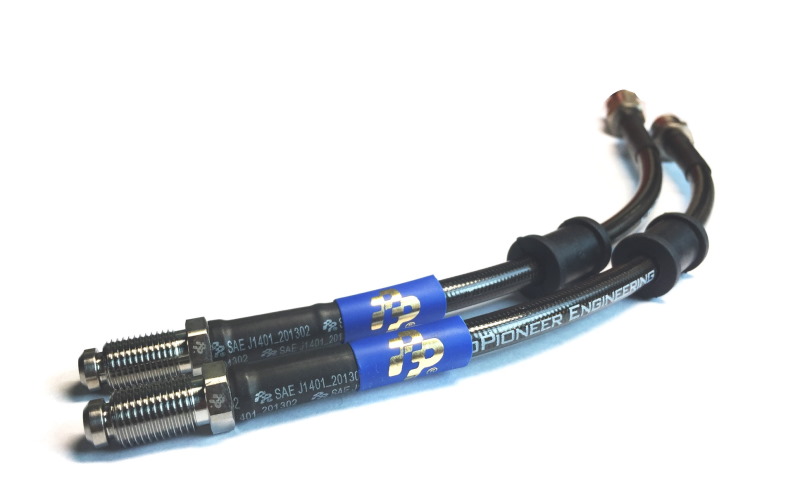What do brake hoses do?

Brake hoses are an important component of a vehicle’s braking system. They are responsible for moving brake fluid from the brake master cylinder to the brake calipers or wheel cylinders. The brake hoses are made of a durable, flexible material that can withstand high pressure and extreme temperatures. They are designed to flex and move as the vehicle is driven, allowing the brakes to function properly.
When the brake pedal is pressed, brake fluid is forced through the brake hoses, which in turn applies pressure to the brake calipers or wheel cylinders. The brake calipers or wheel cylinders then apply pressure to the brake pads, which then press against the rotors or drums, creating friction that slows down or stops the vehicle.
It is important to note that brake hoses can develop leaks over time, this can cause the brakes to fail or not work as well as they should, it is advisable to have them inspected and replaced if necessary by a professional mechanic.
How important are brake hoses?
If brake fluid cannot flow through the hoses, your car’s brakes may not work correctly. Your car’s brakes rely on the smooth transfer of brake fluid to create pressure in your braking system, allowing the car to stop.
Cracked or split brake hoses will also fail a Warrant of Fitness as if they rupture you could lose braking ability.
Even small decreases in brake effectiveness can result in your safety being compromised. If you need to suddenly stop and your brakes don’t work as they should, you are at a higher risk of crashing. Brake repairs should be done as soon as the issue is noticed.
Symptoms of damaged brake hoses
There are several symptoms that can point to a problem in one or more of your brake hoses:
- Fluid Leak: If the brake hoses are damaged, fluid may leak out of the system. This can be seen as a puddle of fluid under the vehicle or as a dampness on the brake hoses themselves.
- Soft or Spongy Brake Pedal: If the brake hoses are damaged, the brake fluid may leak out, reducing the amount of fluid in the braking system. This can cause the brake pedal to feel soft or spongy when pressed.
- Reduced Braking Power: If the brake hoses are damaged, the brakes may not function as well as they should, leading to reduced braking power. This can make it difficult to stop the vehicle quickly or safely.
- Pulling to One Side: If one of the brake hoses is damaged, the brakes on one side of the vehicle may not function as well as the brakes on the other side. This can cause the vehicle to pull to one side when braking.
- Warning Light: Some vehicles have a warning light on the dashboard that will illuminate if there is a problem with the braking system. If the brake hoses are damaged, this light may come on.
- Noise: Damaged brake hoses can make noise when braking. This noise can be a squealing or a grinding sound, it can be heard when the brakes are applied.
Brake Hose Repair in Hamilton
Have you failed your Warrant of Fitness or do you suspect that one or more of your brake hoses are not working correctly? If so, we can help!
Grimmer Motors offers reliable brake hose repair and replacement. One of our skilled, trusted, and qualified mechanics will examine your brake hoses for leaks and cracks. Once we have determined that the brake hose is the problem, we will replace them for you. No work is ever done without your permission.
For honest, reliable brake hose repair in Hamilton, contact Grimmer Motors today!

